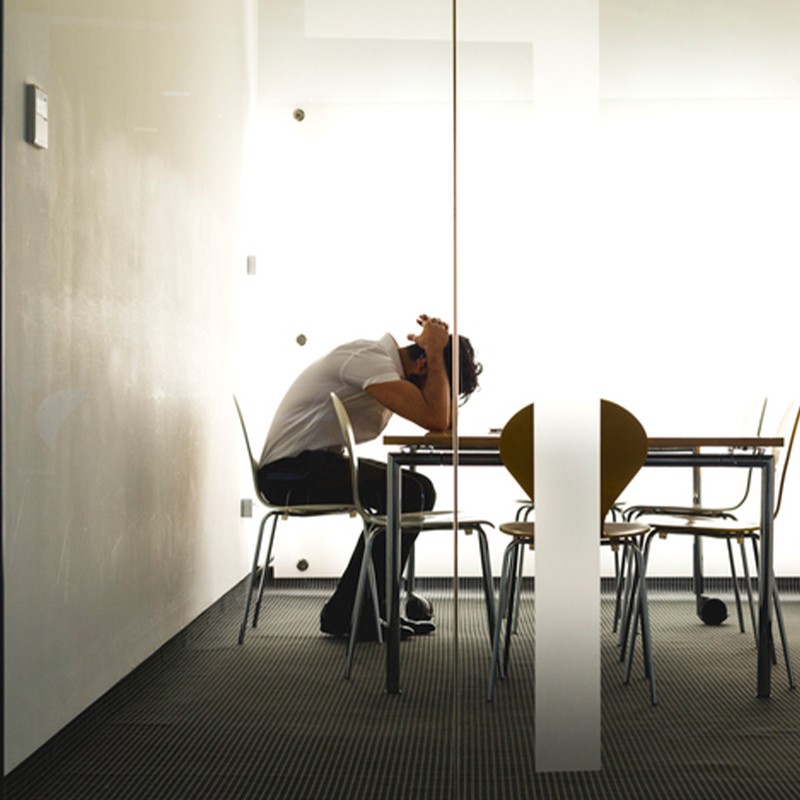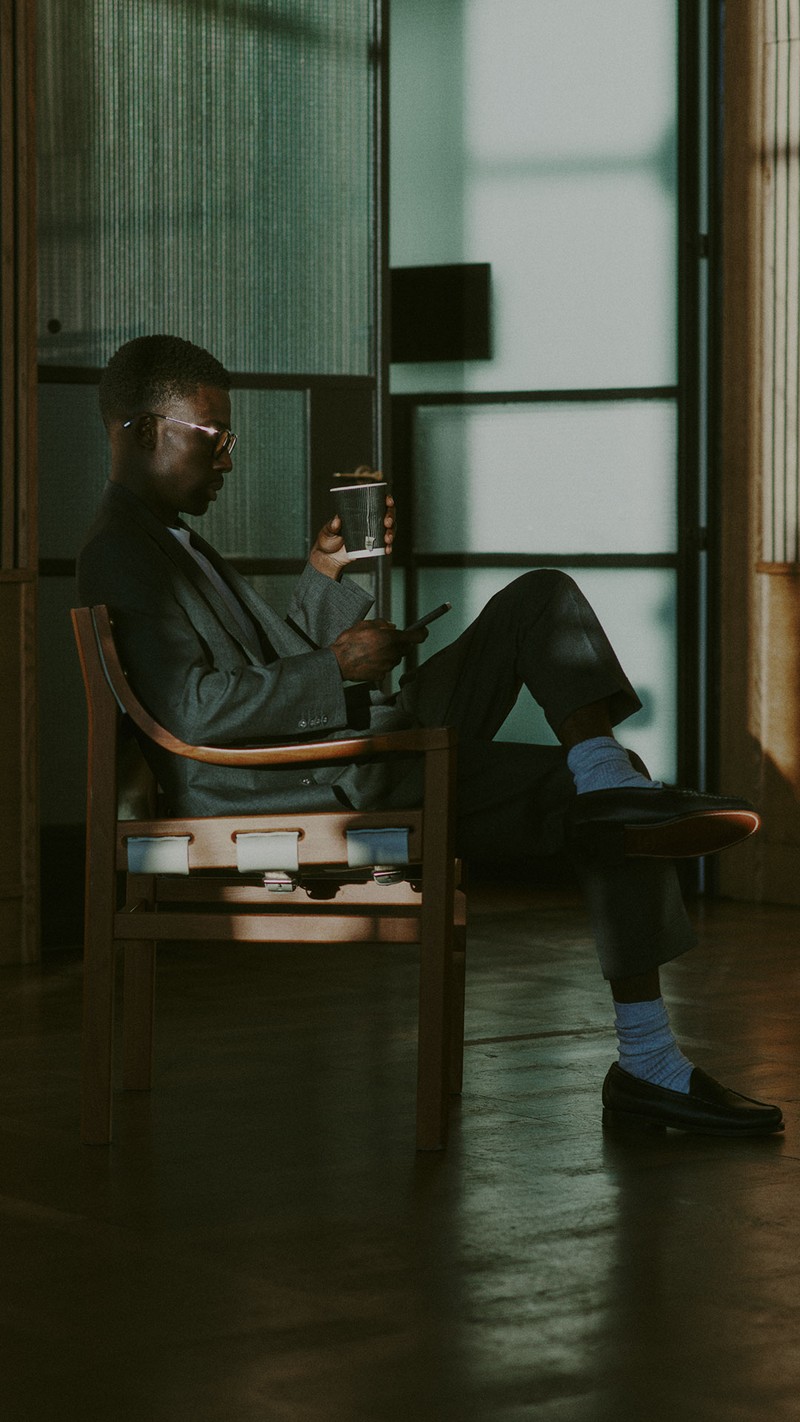How To De-Stress & Reduce Anxiety
Be Realistic
“Focusing on controlling what you can control and letting go of what you can’t control is key to reducing stress and anxiety. So often, we try to control too much, and this tends to happen even more when we are feeling anxious. It’s key to remember we cannot control everything - believing that we can is going to lead to additional stress. Break the situation down: what can you control (normally this is the time and energy you put into something, and your own reactions to the situation) and what you can’t control (normally this is almost everything else – the reactions of others, the deadline for a project, other people’s input, and so on).” – Amy Launder, registered psychotherapist & counsellor
Understand It’s Normal
“If you’re reading this thinking you’re pretty stressed and anxious right now, or you have been or will be, remember it’s okay to feel like this. It’s actually really useful that you’re aware of how you’ve been feeling and the impact this may be having. Taking the time to consciously acknowledge how we are is important to feel seen, heard, supported and to enable change. It also means you are giving yourself a choice to respond differently to the challenges around you. Remember the world will always keep changing. Where we have agency is in how we choose to respond to these challenges.” – Vida Carmel, behavioural change coach
Use Your Breath
“Breathing can have such a profound impact on how we feel. Proper breathing isn’t complicated – just breathe naturally and expansively. If you want to get more technical, try to move the breath down to your abdomen. Try to breathe in for a count of six, and out for six. Just one breath is enough to create change, but if you can stick with it for one minute, this will re-pattern how your heart functions and bring your system into alignment.” – Suzy Reading, chartered psychologist specialising in stress management
Think Positive
“When we’re anxious, we can’t help but let the bad ‘what if’ questions pop into our minds. What if I fail? What if I lose my job? Combat each negative ‘what if’ with a positive one. What if you nail your presentation? What if What if you get a a really exciting job offer? It might sound like you’re inflating your own ego with these positive what ifs, but they are equally as imagined as the negative ones. Neither has happened yet, and so both are imagined outcomes.” – Amy
Set Boundaries
“This is a key element of combatting stress and anxiety, especially when working from home. Even before the impact of Covid on our work situations, the rise of smartphones and work laptops made it almost implicit that you don’t stop working just because you’ve left the office. It’s so important to set boundaries between work and home life so you have time to relax and unwind after work. If you are working from home, work remotely, or have been provided with a work phone and laptop, you might be able to input a nightly switch-off time and turn on an ‘out of office’, letting any senders know you’ll read their email the following morning. The more available you are outside of working hours, the more available people will expect you to be.” – Amy
Stand Tall
“Research shows the way we hold our body affects subjective energy levels and feelings of personal power. Try to avoid a round spine and a downcast gaze, which is the position we typically come into when sitting at a computer. Try to elongate your spine and open your chest, and soften your jaw and shoulders, which will connect you with poise. If your spine is upright, you also have a full range of motion to move your head, which physiologically means you’re able to assess threats and better process stress. Your posture also has a knock-on effect on your breathing – stand taller and you will have better energy levels and more optimism. Think about this whether you’re sat at your desk, driving, walking or standing in a line.” – Suzy
Find An Anti-Anxiety Mantra
“If you suffer from panic attacks, try to reframe your thinking. Imagine you get onto a train and notice your heart rate has picked up; you may start to panic that you are about to have an attack, and find yourself sweating and short of breath, and then spiral into a full-blown attack. What might have actually happened is that you walked slightly faster than normal to catch your train and this raised your heart rate; you interpreted this as a symptom of a panic attack and then began to panic, which is what triggered the attack. This isn’t to say panic attacks and anxiety attacks aren’t real – just that sometimes they are brought on more by anxiety about anxiety, than anything else. What I would suggest in these situations is to look for the evidence: why might your heart rate be picking up? Also consider using a mantra: ‘This too shall pass’ and ‘I’ve survived every panic attack in the past’ can help.” – Amy
Move Your Body
“Emotions have motion, so get moving. When you really don’t feel like doing anything, that’s usually a sign that it’s most important to do so. Your body keeps the score and, as long as you stay physically stuck, it will be difficult to change how you feel. Even just getting up in a moment of high stress to do ten star jumps or running on the spot will make a difference. Moving your body, energy and emotions enables you to feel different and often takes you into other environments, which is useful. If you can move yourself into new surroundings, you will notice you can feel different too. Even a short walk around the block can help.” – Vida
Address Your Energy Deficits
“Prolonged high stress levels can lead to burnout. This may be experienced as a ‘performance cliff edge’, where you notice a sudden drop in your ability to perform tasks and concentrate. To overcome this, there’s a need to develop healthy habits, which can be achieved by addressing deficits in types of energy: physical (think about your nutrition, sleep and exercise); emotional (socialising and connecting with freinds and family); spiritual (practices include prayer and meditation) and creativity, such as reading more and listening to podcasts. All of these can help establish boundaries between work and home.” – Dr Chi-Chi Obuaya, consultant psychiatrist & clinical lead at The Soke
Practice Makes Perfect
“Meditation and yoga aren’t for everyone, but there’s little to be lost from giving them a try. The ‘out’ breath in yoga, for example, activates the parasympathetic nervous system, which slows down breathing and acts as a counterweight to the overactive sympathetic nervous system. Remember – experiencing stress doesn’t mean you suffer from a major mental health problem. Do remain in contact with your personal support network to help you cope with adversity and maintain a sense of normality. If in doubt, there is no shame in seeking professional help from your GP, a psychologist or psychiatrist.” – Chi-Chi
If you are worried about your own or someone else’s mental health, speak with a therapist near you, or speak with your GP. Samaritans are also available to listen 24/7 on 116 123.
For more information, visit AmyLaunder.com, VidaCarmel.com, SuzyReading.co.uk and TheSoke.uk.
DISCLAIMER: *Features published by SheerLuxe are not intended to treat, diagnose, cure or prevent any disease. Always seek the advice of your GP or another qualified healthcare provider for any questions you have regarding a medical condition, and before undertaking any diet, exercise or other health-related programme.
DISCLAIMER: We endeavour to always credit the correct original source of every image we use. If you think a credit may be incorrect, please contact us at [email protected].


